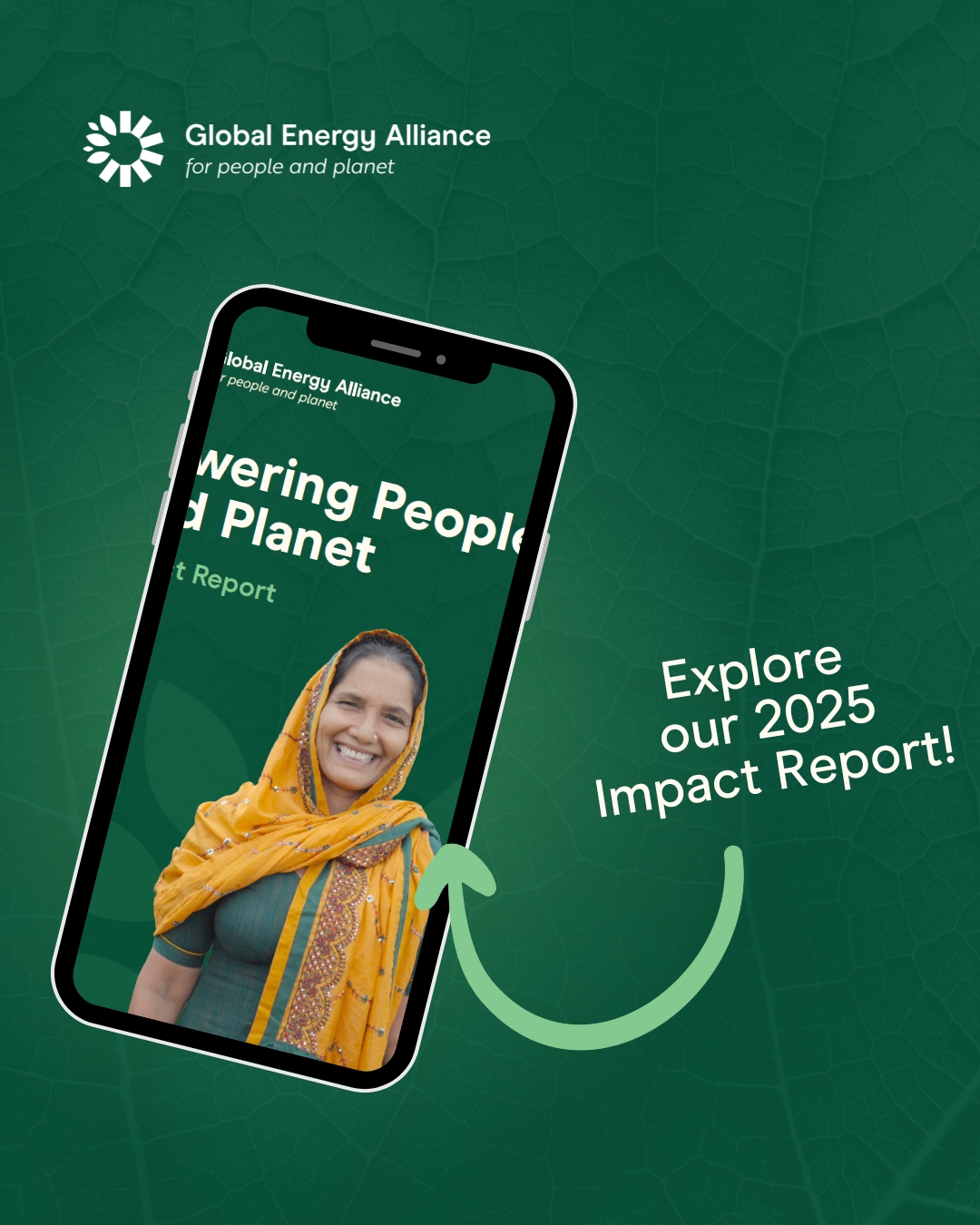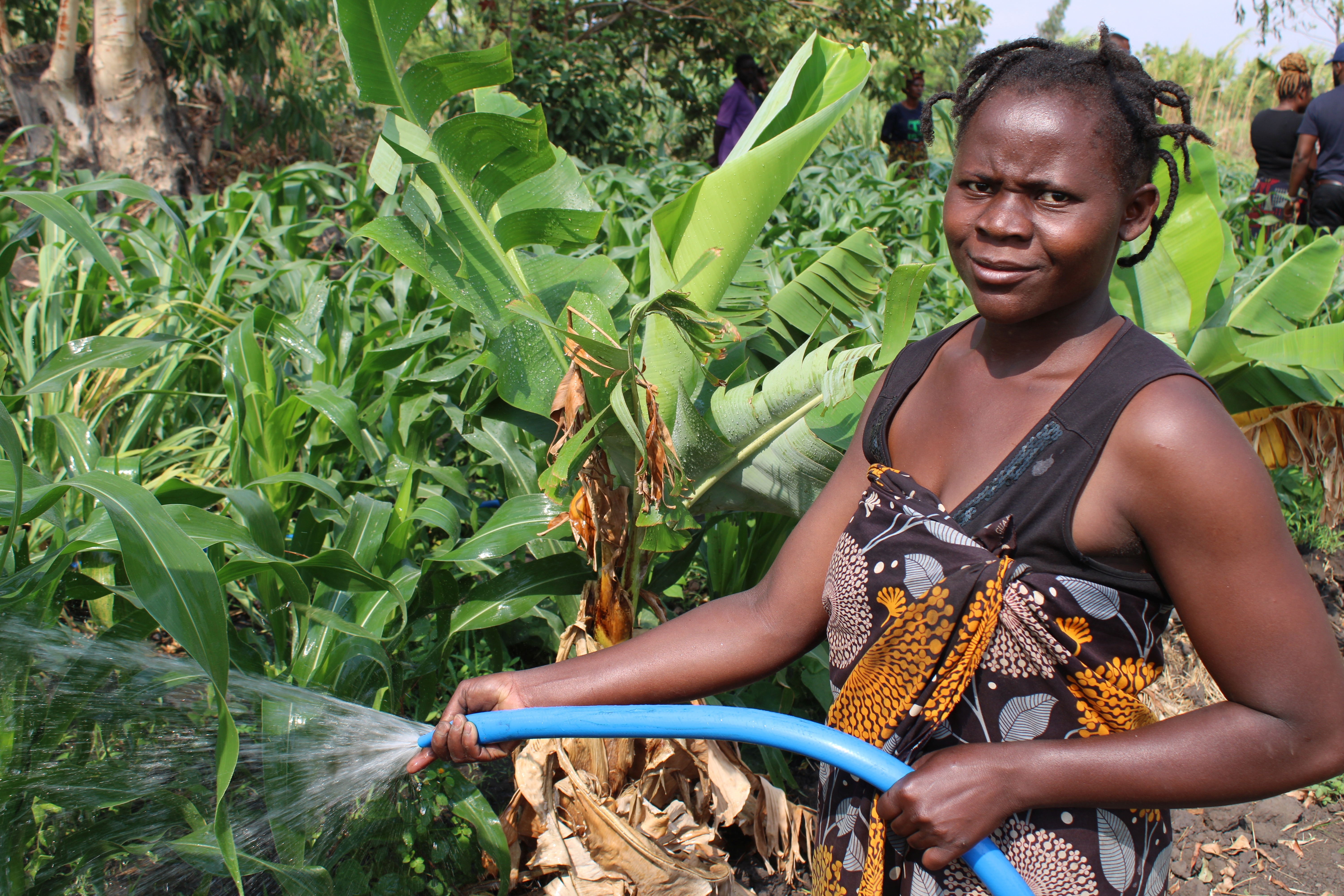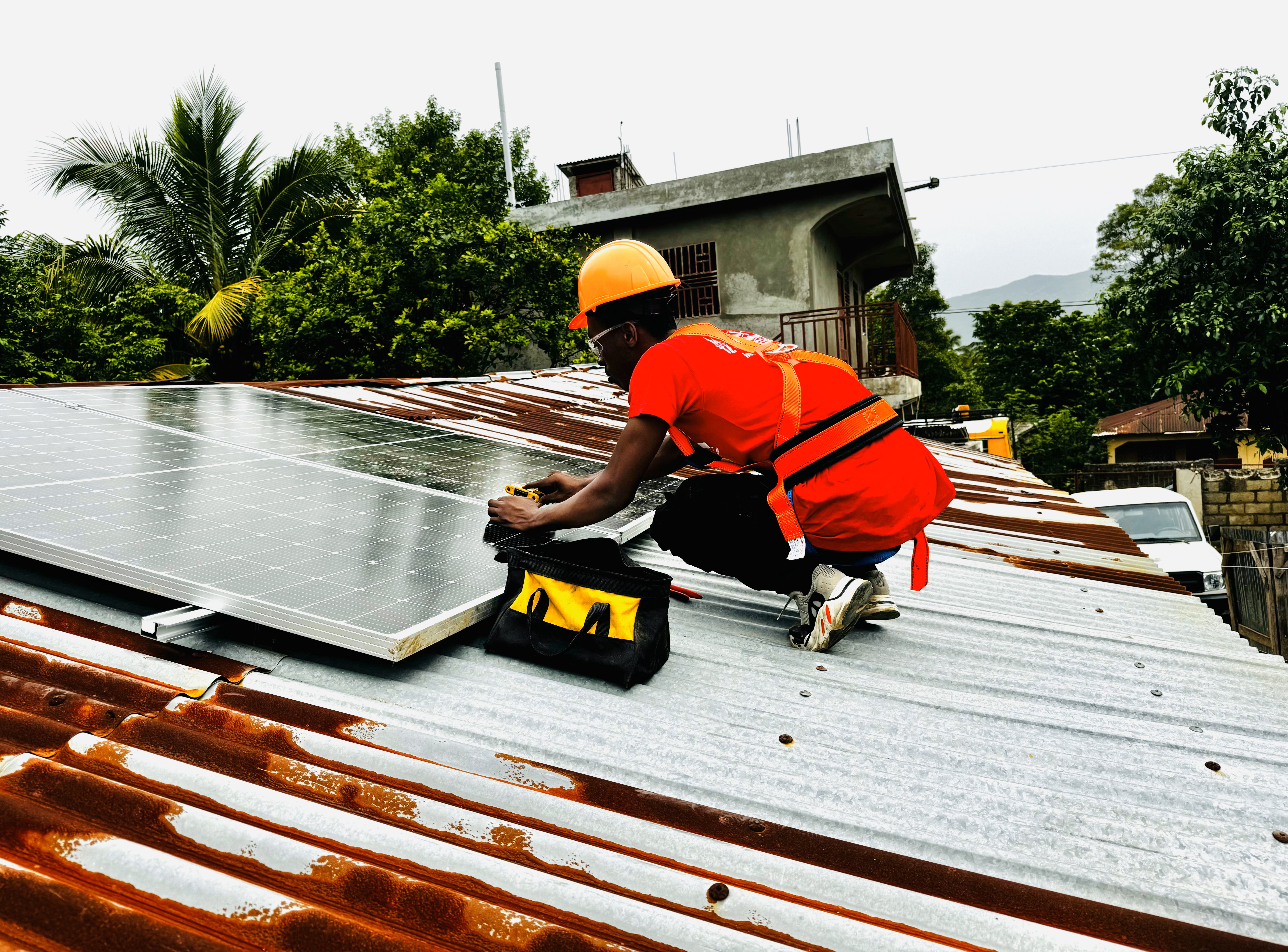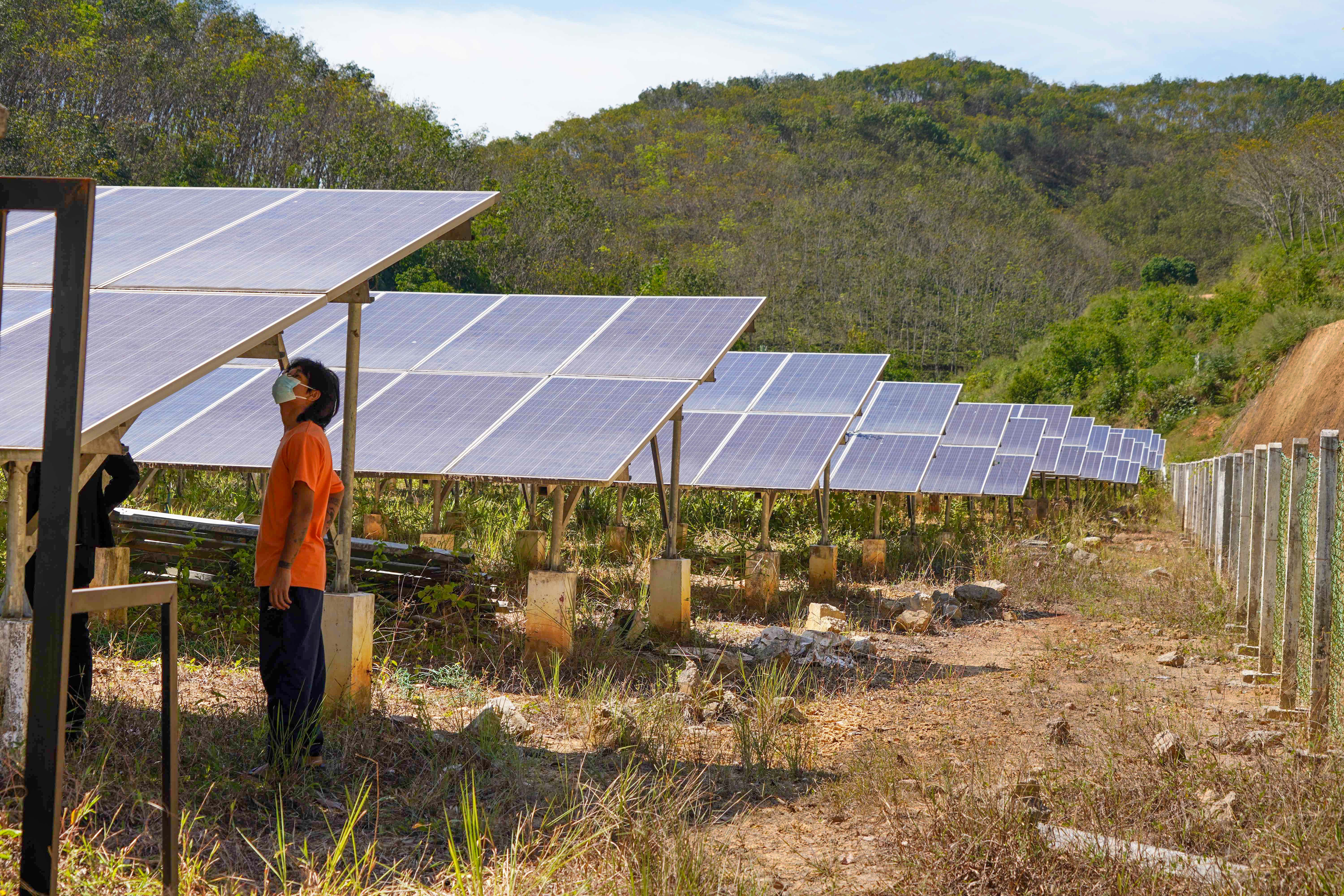Powering small businesses for big impact in Haiti

For bodega-owner Rose-Marie Gades, sales picked up when she found a way to help her customers cool down.
A resident of the small town of Roche-à-Bateau on Haiti’s southern peninsula, Rose was able to start selling cold drinks – and quadruple her income – when she received a freezer from the Haitian nonprofit, Fonkoze Foundation, in partnership with GEAPP. The program aims to increase access to electricity by stimulating demand through entrepreneurship.
“When the power came to town, everyone was happy because of the change it brought. It created more activities in town,” says Rose. “I decided to use this electricity to sell cold drinks. I also purchased a speaker through the project which helps attract more clients to my business. I was able to do all of this thanks to the electricity.”
While Rose enjoys her thriving business and her customers enjoy cold drinks, Rose’s seven children are enjoying something else – school.
“The little business that I had couldn’t provide enough to send my kids to school,” she says. “The freezer helped me expand my business and now I have enough money to buy school supplies and send them to school.”
The benefits extend to Rose’s neighbors as well who save time and money now that they are able to buy more of what they need locally.
Haiti has the lowest electrification rate in the western hemisphere, with only about half of Haitians having access. In rural areas, that number drops to around 2%. The national electric utility faces serious financial and technical challenges and only supplies electricity to major cities.
This lack of access to energy holds back rural development. Communities are caught in a vicious cycle, where power cannot be developed for lack of demand, and demand cannot grow for lack of power.
Our Alliance works to accelerate electrification in Haiti by supporting the development of a strong decentralized renewable energy sector, with the goal of connecting 2.5 million Haitians to reliable, clean power.
To make these systems financially viable, we helped small businesses, like Rose’s bodega, find ways to use electricity to increase local economic activity, benefit their communities and provide revenue to the grid operators. The work has helped more than 250 mostly women entrepreneurs find ways to use electricity to grow their businesses. Local grid operators have benefited too. More demand for electricity has boosted their profits and enabled them to expand their service.
It’s a win-win for everyone involved.
“Someone who is able to generate a business by using this electricity, helps that person and their family, but also the entire community,” says Guy Vital of the Fonkoze Foundation.



